What Makes a Good Horse Racing Jockey?
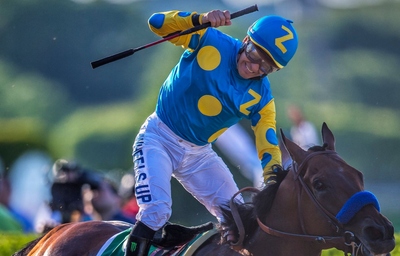
There are many elements which need to fall into place in order to create a champion race horse.
Of course the trainer is an integral part of this, but the owner has a hand to play too, not to mention the horse’s pedigree which is where it all began.
They need to be entered into the right races, at the right time in their racing careers, and with any luck the racing conditions will need to suit them perfectly too.
The key partnership on race day, however, is of course the jockey and the horse.
Theoretically any jockey can ride any horse, but in the same way that some human beings just don’t get on, a horse and a jockey can but heads too – they’re unlikely to argue about politics or football teams, but for whatever reason, sometimes their temperaments don’t match.
For the recreational punter, those arched backed men in funny outfits probably don’t mean a lot, but the way a jockey and a horse work together is absolutely vital for success, even if it’s not immediately obvious what each jockey is doing.
When a footballer shows skill on a football field it is impossible to miss, so even someone new to the sport can appreciate that player’s quality, but with horse racing this is not the case.
The skill of a jockey is as much about what goes on in their mind, their decision making and their understanding of the horse they are riding, as it is about what we can see them doing; and it’s not always easy to spot what they are doing either.
Therefore, if you ask the average man or woman on the street what makes a good jockey they probably wouldn’t have much to say, but there is actually plenty to know.
Skills Needed to be a Good Jockey
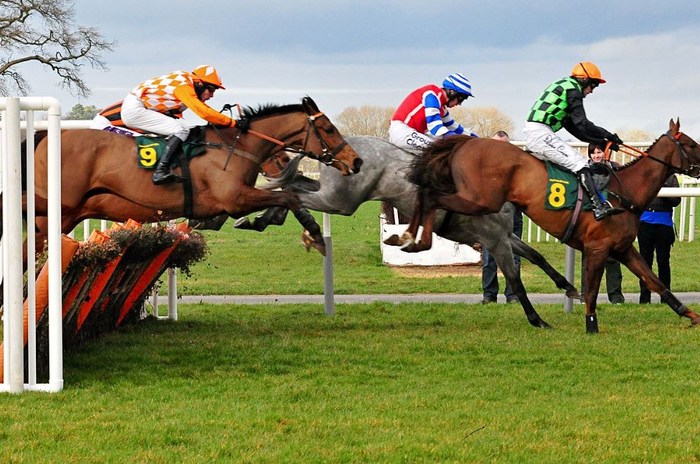
Some of the attributes that make a good jockey are inherent, and others are most definitely skills that have been honed over many years of practice.
For example, most jockeys are between 4’10 and 5’6. This is to do with meeting weight requirements, as before and after each race jockeys must weigh in with all their gear and clothing.
The minimum weight for both race types is as follows:
| Flat | Jumps |
|---|---|
| 8st 2 lbs | 10st 2lbs |
Obviously the closer to that minimum they can be the better, and since shorter people tend to weigh less than taller people, being a jockey suits those of a more diminutive stature.
This is not something the jockey can do too much about of course, other than be very disciplined with their eating, so this would be an inherent attribute.
Some of the mental attributes fall into the same category; fearlessness, mental agility, compassion for the horses, the ability to judge speed vs distance to go while riding, retaining information about tracks and other horses or riders.
A jockey will fall off horses, be that in a race or in training, and bones will be broken. You know the phrase “get back on the horse”? It applies literally here. Jockeys need to be brave, they need to know they can fall and go for it anyway. They need to be able to sustain injuries, recover, then get straight back on the horse.
It’s not just a physical job though. A jockey learns about the animals and riders around them, knows strengths and weaknesses and studies the different tracks they race on so they can take advantage of that information. In bad weather perhaps the water runs in a certain direction making one side of the track softer than another, for example.
Furthermore, a partnership between a jockey and a horse is all about giving and taking control, so a jockey needs to instinctively know when to let the horse do its’ thing, and when to step in and take the lead.
This is all about intelligence, and although it’s obviously possible to be educated and to learn, some people are born bright and others are not, so a jockey who is born with a brain with have an advantage here.
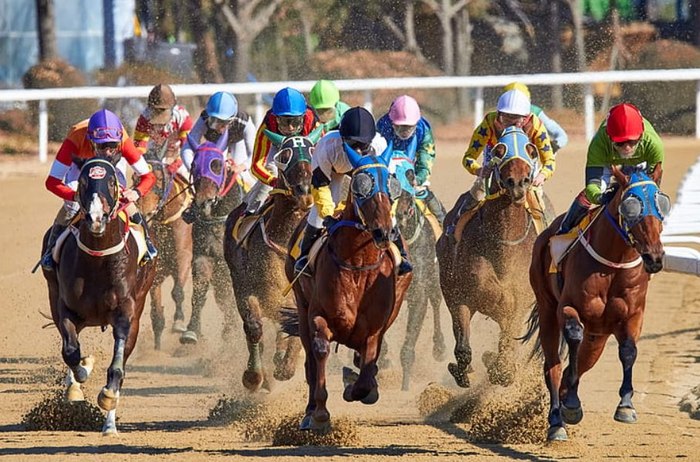
When it comes to learnable skills, we can probably look at them in four categories:
- Positioning
- Tactical Ability
- Their Own Physical Fitness
- Riding Style
A jockey needs to know where their horse feels most comfortable and also when to move them from one position to another. This decision will be down to things like the horse’s stamina, the going, other horses in the race, etc.
It ties in with the tactical element because if a jockey understands exactly when to push a horse and how hard, they can use positioning to get themselves in the ideal spot to utilise a 15 second burst of speed, for example.
If they know their horse can really gun it on the straight but they lose stamina quickly, then being in the right place to use that short burst of energy to its fullest effect is paramount.
It’s not just the horse’s physical fitness that comes into play either, the jockey needs to be very fit too, not to mention having excellent balance.
Maintaining their weight means lots of sessions in the gym, and it takes a lot of strength and agility to control a horse going at 30mph or more, so while their whole body is kept in good shape it is their core, leg, and back muscles that are most important.
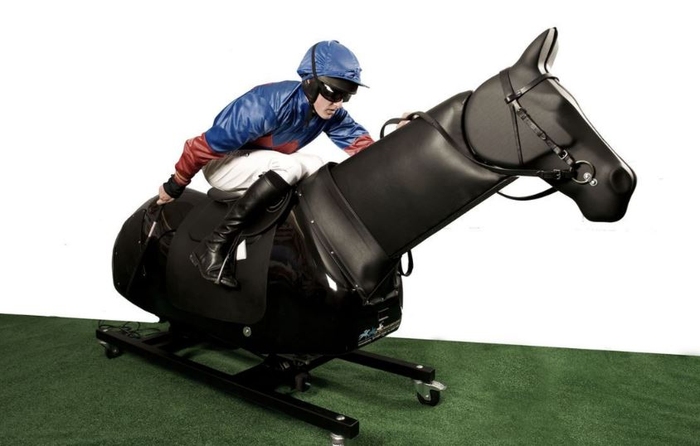
The jockey needs to maintain perfect posture in order to both stay in control of the horse, but also isolate themselves and hold their own weight as much as possible. This is why you see jockeys standing in a crouched position rather than sitting on a horse, and it is incredibly difficult to maintain for the length of a race, and especially at full speed. They have to train hard to achieve this level of skill.
Lastly, the way a jockey rides in different situations is also important. They need their style to suit the horse – so for example the way one jockey rides over a fence might be to sit back and let the horse work it out, while another might really drive the horse into the fence – but they also need to know what approach to take in a given situation.
Some horses like to lead so the jockey would need to establish a position quickly; some prefer to pass other horses so the jockey must hold them back just enough so that the horse can overtake but still have time to get to the front before the end. Some horses are ok being bunched up with the others and can move up against the rail; while some like more space so will need to do most of their overtaking on the right.
Can Jockeys Make the Horse Run Faster?
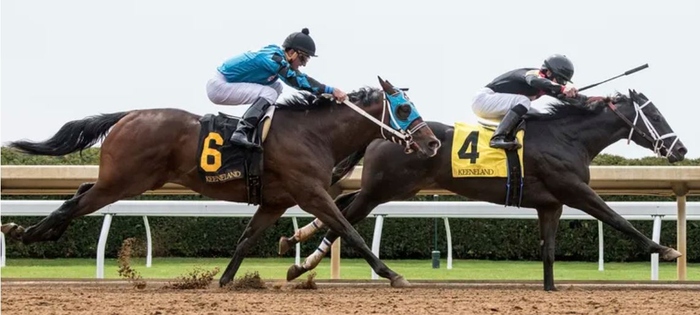
They can, and not just by using the whip either.
A jockey’s riding technique does a lot to improve the speeds at which a horse can run, so perfecting the technique can be the difference between winning and coming second in tight finishes.
A jockey’s weight is unchangeable at the start of the race, the horse is going to be carrying that 8 -10 stone regardless. However, the way a jockey holds themselves can have a big impact on how easy or difficult the horse finds it to carry that weight.
If you think about carrying a small child in front of you, their weight pulls down on your arms. If that child simply sat in your arms and didn’t use any of their own strength to cling to you, your arms would become tired much more quickly than if they were holding on tight with their legs around your waist and their arms around your neck.
Jockeys take this idea further.
A position called the ‘monkey crouch’ was introduced around 1900, and it had a profound effect on the speed at which a horse could complete a race. Finishing times improved by between 5% and 7% across the board.
It makes things much more physically difficult for the jockey – who will be out of breath at the end of a race – but it means that the horse is not dragging the extra weight around the course, it is just supporting that weight.
The jockey will push down with their legs and move rhythmically in time with the horse to compensate for their weight, and this creates kinetic energy allowing the jockey to ‘drive’ the horse faster.
It ends up looking like the jockey is floating above the horse when they are doing it right, which saves the horse from having to pull the jockey’s body along with them; the jockey sort of does some of the work for them, and if you watch their knees you can see it.
It can be argued that the whip doesn’t actually make the horse run faster, but is just another way of communicating with the horse to keep going at speed.
So it tells the horse to run faster, but can’t actually increase the horse’s speed.
Is the Jockey More Important than the Horse?
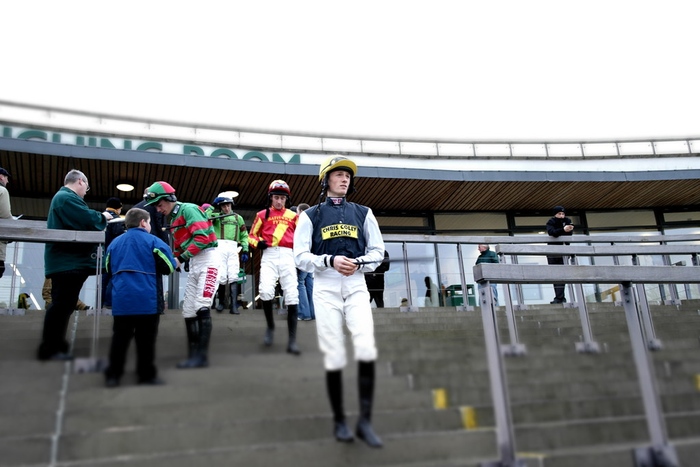
Everyone agrees that a skilled jockey can’t make a winner out of a bad horse, but then everyone also agrees that a great horse can’t win a race without a skilled jockey.
The degree to which one outweighs the other in terms of importance is a matter for eternal debate, and everyone has their own opinion on it.
One of the magical things about horse racing is the unexplainable connection between the horse and its rider; you might not know why it happens, but you sure as heck recognise it when you see it on the track.
There is a reason that some horses are ridden by the same jockey their whole careers.
Look at one of the greatest of them all, Secretariat, the 1973 Triple Crown winner (the first in 25 years). He set a record that still stands for the fastest time to complete all 3 races and in the Belmont Stakes he won by an astonishing 31 lengths! Another record and one that may never be beaten.
Aside from his first two races, Secretariat had the same jockey for his 21 race career, a man named Ron Turcotte.
The horse won 16 of his 21 races, placing in all except his first in which he came 4th, and in which a different jockey was riding him. That leaves just 4 races in which Secretariat was not first past the post, and one of them was due to him having an abscess no one knew about until after the race, and he still managed to come 3rd.
There are many examples of this sort of long-standing partnership, evidence that a good jockey can get the best out of a good horse, and when a good pairing is found neither party want to break it up.
So while we wouldn’t say the jockey is more important than the horse, it might be fair to say they are equally as important.
